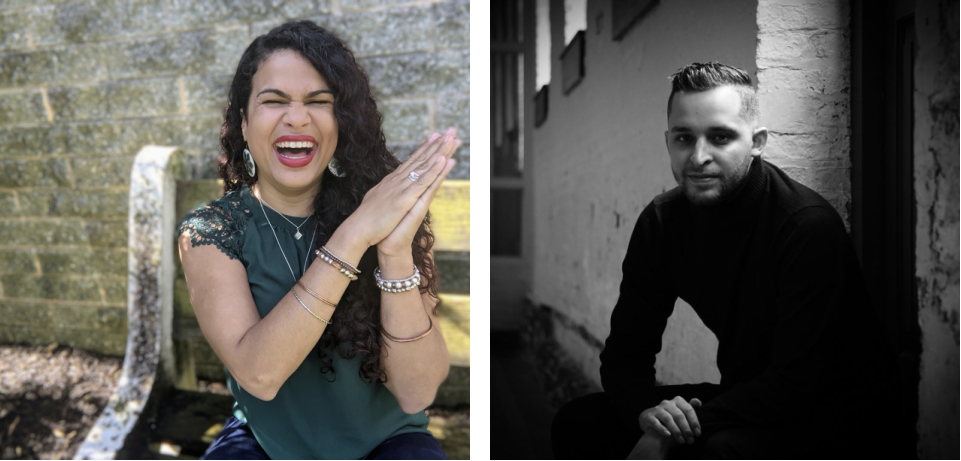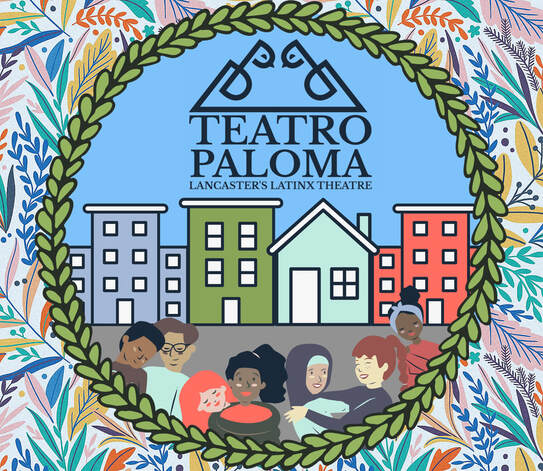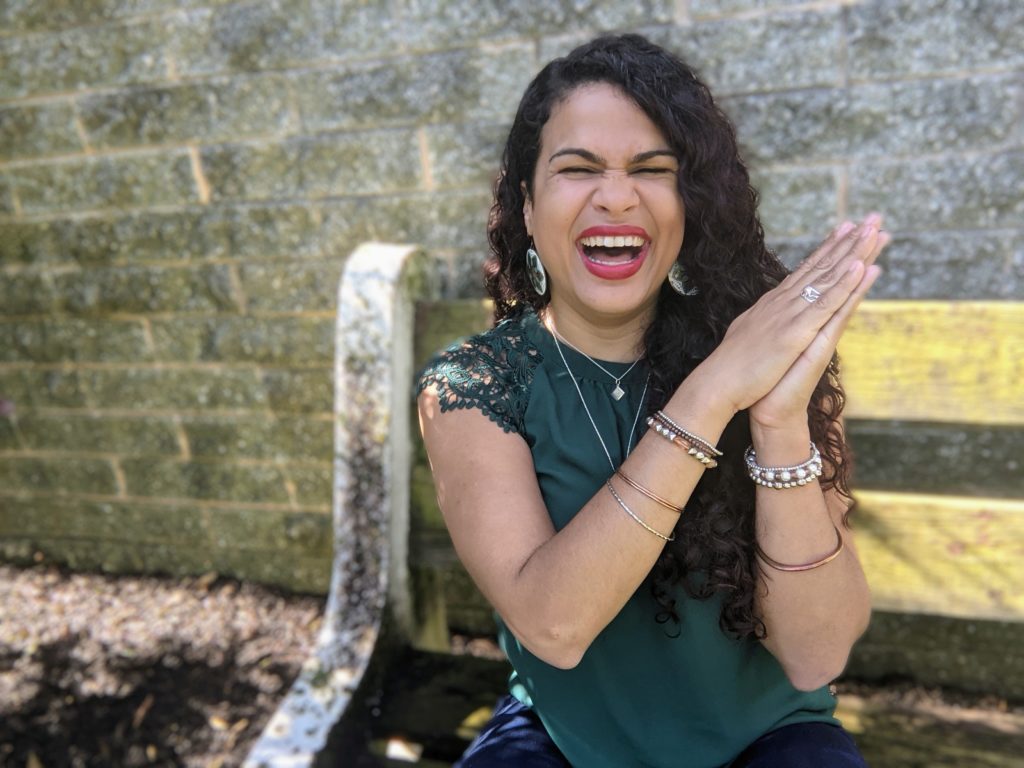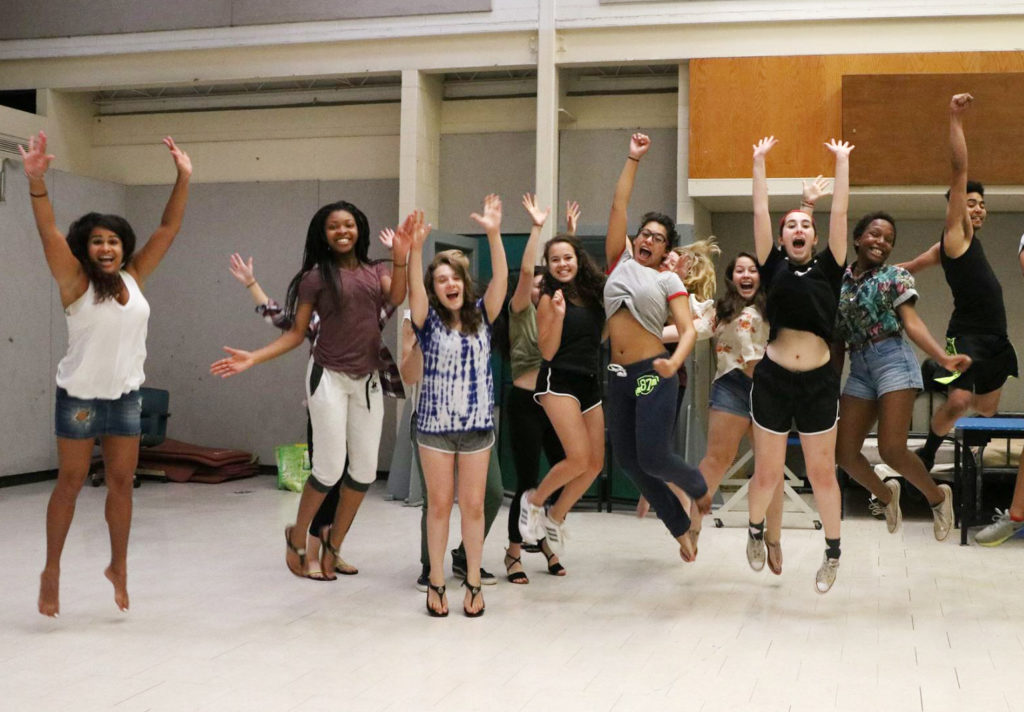
Collaboration with Teatro Paloma leads CCE into workshops featuring Spanglish monologues and theater games
Friday, December 17th, 2021
When you’re faced with a sense of “ni di aquí, di de allá” — being neither here nor there, culturally speaking — finding something that grounds you, and provides a sense of belonging, is a powerful thing.
Maybe it’s language, shared with others in your group while forming a bridge to “the outside.” Maybe it’s physical, finding a way to be grounded in your own body. Having that foundation can be the start of some radical creative moments. propelling you into explorations that might not fit into either “here” or “there,” but instead take you somewhere new.
PCA&D’s Center for Creative Exploration has paired with two Teatro Paloma veterans for a pair of classes this coming Winter session that aim to take participants to those new places of creative transformation. The partnership, says Salina Almanzar-Oree, CCE’s Program Coordinator, “was inspired by our desire to offer more courses that include and reflect the demographics of our community … We also saw this as an opportunity to highlight the amazing work each Teatro Paloma company member does!”
José Guillermo Rodriguez-Plaza, a scholar, actor, and founding Teatro Paloma member, will lead How to (Un)tame the Wild Tongue: Intergenerational Monologuing in Spanglish, a two-Saturday workshop in February. And Jade Cintrón, educator, scholar, and actor, will teach Theater Games for the Overworked Person, a one-session workshop in March.
The two workshops, Almanzar-Oree says, are a collaboration that supports “the work and projects creatives are doing in our community. Collaboration is our strength, and we’re excited to build this relationship with Teatro Paloma!”
How to (Un)tame the Wild Tongue: Intergenerational Monologuing in Spanglish
The concept of the “wild tongue,” José Guillermo Rodriguez-Plaza says, comes from a chapter in “Borderlands/La Frontera: The New Mestiza” by queer Chicana scholar Gloria Anzaldúa. The author describes having a “wild tongue,” Rodriguez-Plaza says, “as a refusal to assimilate to societal pressures to speak standardized versions of English or Spanish. Rather than assimilating, Anzaldúa advocates for becoming empowered by our wild tongues.”
What will the workshop consist of? How do you envision the process of writing monologues in Spanglish?
Rodriguez-Plaza: The workshop will begin by surveying abstracts of key Latinx voices that talk about being “ni de aquí, ni de allá,” an in-between metaphorical space that speaks on being “neither from here nor there” in order to build a foundation of Spanglish voices but also, to discuss the importance of true and unfiltered self-expression. …Participants will brainstorm ideas for topics for their monologues, to then begin the writing process by choosing the first and last lines of their monologues based on the idea that most resonated with them. (After constructing the “in between” of the monologues), the second day of the workshop will focus on sharing their writing with each other for feedback in a sharing circle.
Will the monologues be shared with a wider audience?
R-P: Participants have the option to present their pieces to a live audience in Teatro Paloma’s 2022 Community Talent Show on March 4, 2022.
Do you need to be fluent in both Spanish and English to participate?
R-P: One does not need to be fluent in both languages to explore their usage of Spanglish. Many of us already do it without being fluent in both! For example, Puerto Rican Spanish-speakers use structures and words that are borrowed from American English. However, to actively seek to communicate in Spanglish one needs to be familiar with both.
Who is the ideal student to take (Un)tame the Wild Tongue?
R-P: Anyone, ideally from Latinx heritage, who is interested in exploring creative ways to tell their stories in their form of “hybrid” language. However, though this workshop is designed around the use of Spanglish, anyone who can surf between English and another foreign language is welcomed to participate in the workshop.
Do you see a generational divide between who speaks Spanglish and who does not? Or is it something else entirely?
R-P: I think it has to do with our own conception of language and what it is supposed to do. For example, native speakers of Spanish in a Spanish-speaking country are not faced with this dilemma because there is no outside pressure to assimilate to standard English in their home countries. However, people from Latinx descent that live in the United States face this dilemma in their daily lives — and though some might not willingly embrace the use of Spanglish at first, it’s something that over time happens naturally.
Theater Games for the Overworked Person
Jade Cintrón has made a living from bringing theater into non-traditional theater spaces, she says, and an arts college is a natural fit. And it’s important that people “see the arts, and in this case theater, as a tool, not only a literal performance-based activity. Through theater, we get to step into others’ shoes and play. Play shouldn’t just stop because we’re adults.” Theater Games for the Overworked Person, Cintrón says, will use theater games as a way to let go, relax, and explore options. “No performance will come out of this, no degree or certification,” Cintrón says. “No one needs to win an Oscar. I would like people who are overwhelmed with life, work, and anything else to come and forget all that for just a bit. At the end I hope that people feel that wonderful cathartic feeling you have when you’ve de-stressed.”
Who are you aiming to serve with this class?
Jade Cintrón: I think this class can benefit anyone, really… levels of stress will not be measured (laughs). But seriously, it’s for people who want to explore parts of themselves that they feel they can’t do otherwise but in a safe, non-judgemental space. So often life gets in the way and we sink and sink until we can’t find ways out. This class is meant to give you relief from that for just a bit and hopefully take some of those tools home with you.
Will there be a performance at the end of class?
JC: Nope! In the class itself there will be moments to practice the game with a scene mate or two but this will just be for ourselves. No memorizing, no rehearsal, just exploration.
Is there anything else a prospective student should know about Theater Games, Jade?
JC: I think people hear “theater” and think OH NO! Performance! And that’s not the case here. There is no right or wrong. There is no audience! … I will absolutely encourage people to go beyond what they know about their inner theater people because I want them to feel that much closer to being theatrical, but happy to be who they are as well. We will laugh, stumble, laugh some more, myself included!
Can you describe your theater background?
JC: I have been singing and dancing and acting things out since the womb … but seriously, I have been poised for this since I was a kid. I took all the dance, singing, piano, drum, and eventually acting classes you could imagine before going on to do community theater in my neighborhood in Jersey. (I went on to study) Theater as a BA degree at Rutgers University. … I interned at some amazing arts organizations such as The State Theatre of New Brunswick, MTVu, The Fantastical Experimental Latino Theatre and The Broadway League. After college I moved to Barcelona, Spain, to teach English as a Second Language through theater and movement, where I did so for eight years while performing. In the summers I was Associate Director of the Rutgers Summer Acting Conservatory for High School Students. I moved back stateside in 2017 to get my degree in Arts Administration focusing on enhancing cultural awareness and sensitivity through theater and language education. I now am the Founder, Artistic Director, and Host of ¡Looking Bilingüe!, a storytelling platform of multilingual, multicultural Latinxs who feel ni de aquí, di de allá: neither from here nor from there.




